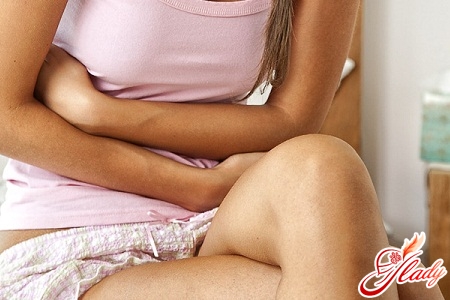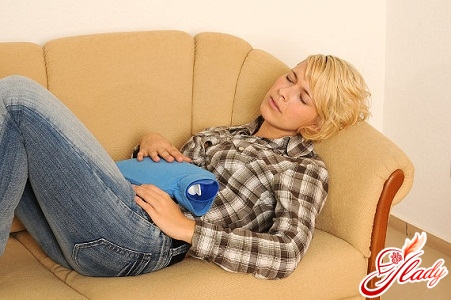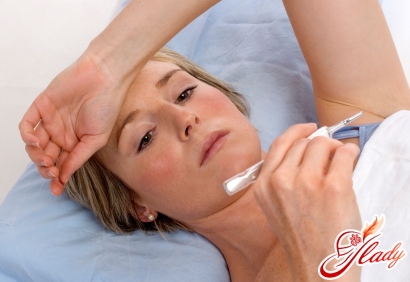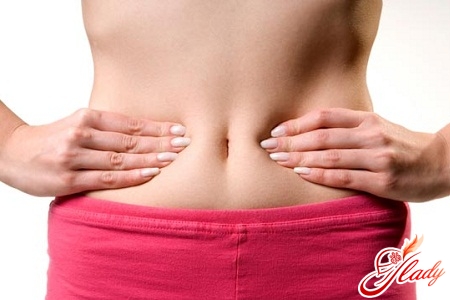 Menstrual pain is a huge nuisancenumber of girls and women. Of course, those lucky ones who have never had to deal with this problem cannot estimate the full scale of the trouble. However, those women who know firsthand what monthly pain is, say that these few days a month literally knock them off their feet. Often, the pain experienced by a woman is so intense that an ambulance has to be called. There are many versions of the origin of menstrual pain. Some gynecologists claim that often the main culprit of a woman having menstrual pain is a hereditary factor. They claim that some women have an increased susceptibility to uterine contractions, which necessarily occur during menstruation. And this feature is very often passed on from mother to daughter. And in the event that such pain does not appear immediately, but after several years, perhaps it is worth talking about such a phenomenon as secondary menstrual pain. As a rule, they appear as a result of such diseases as endometritis, endometriosis, varicose veins of the pelvis, uterine fibroids and various infections of the genitals. And the more serious and advanced the disease, the stronger and more intense the pain. Often, women note that after the birth of a child, menstrual pain becomes much weaker, and sometimes disappears altogether. Doctors explain this feature by the fact that during childbirth the cervix stretches. And it is due to this that during menstruation, uterine contractions are practically not felt. However, all cases of menstrual pain largely depend on the level of hormones such as prostaglandins in the blood. These hormones are produced by the mucous membrane of the uterus and play a huge role in the functioning of not only the reproductive system, but also the entire female body. It is the excess of this hormone that entails the negative phenomena that often accompany menstrual pain:
Menstrual pain is a huge nuisancenumber of girls and women. Of course, those lucky ones who have never had to deal with this problem cannot estimate the full scale of the trouble. However, those women who know firsthand what monthly pain is, say that these few days a month literally knock them off their feet. Often, the pain experienced by a woman is so intense that an ambulance has to be called. There are many versions of the origin of menstrual pain. Some gynecologists claim that often the main culprit of a woman having menstrual pain is a hereditary factor. They claim that some women have an increased susceptibility to uterine contractions, which necessarily occur during menstruation. And this feature is very often passed on from mother to daughter. And in the event that such pain does not appear immediately, but after several years, perhaps it is worth talking about such a phenomenon as secondary menstrual pain. As a rule, they appear as a result of such diseases as endometritis, endometriosis, varicose veins of the pelvis, uterine fibroids and various infections of the genitals. And the more serious and advanced the disease, the stronger and more intense the pain. Often, women note that after the birth of a child, menstrual pain becomes much weaker, and sometimes disappears altogether. Doctors explain this feature by the fact that during childbirth the cervix stretches. And it is due to this that during menstruation, uterine contractions are practically not felt. However, all cases of menstrual pain largely depend on the level of hormones such as prostaglandins in the blood. These hormones are produced by the mucous membrane of the uterus and play a huge role in the functioning of not only the reproductive system, but also the entire female body. It is the excess of this hormone that entails the negative phenomena that often accompany menstrual pain:
- Headache. Often these days, women even have migraines.
- Strong general weakness and dizziness.
- Violation of normal digestion: bloating, intestinal colic, diarrhea and constipation.
Of course, all women who suffer frommonthly painful menstruation, try to get rid of the pain in every possible and impossible way. And often they buy expensive drugs in the pharmacy to relieve the pain, but they do not bring the expected result. In fact, the only pharmacological drugs that really help eliminate pain during menstruation are acetylsalicylic acid and ibuprofen. These drugs not only have analgesic properties, but also significantly reduce the level of prostaglandins. However, they can only be used if the woman is sure that she does not have an allergic reaction to any of the painkillers. In addition, such a drug as no-shpa has a good effect - it perfectly relieves spasms of the uterine muscles, and therefore reduces pain. There are also several other improvised means that perfectly help eliminate pain during menstruation. Try, experiment, listen carefully to your feelings, and you will definitely choose the most suitable remedy for you. However, despite the fact that all these methods do not pose any threat, a woman should still consult with her attending physician - gynecologist. So:
Warm Heat Warmer
As mentioned above, pain sensations are felt inDuring menstruation, pain is most often caused by strong muscle contractions of the uterus. Doctors say that heat is very effective in relieving muscle spasms – sometimes more so than the most effective pharmacological antispasmodic. A woman can use either a special heating pad or an ordinary plastic bottle filled with water of a suitable temperature. Place the heat on the lower abdomen for about 15 minutes, then move it to the lumbosacral region. The heat can be left on for as long as necessary for the pain to subside. However, please note – if you use heating, do not take acetylsalicylic acid. And keep in mind that bleeding may increase slightly during heating – this is absolutely normal and should not be alarming. As soon as you stop heating, the intensity of bleeding will return to normal.
Regular physical activity
As practice shows, the least commonMenstrual pain is suffered by those women who are in good physical shape. Of course, you should not exercise on days marked by menstrual pain. However, on all other days, you should pay attention and devote some time to physical activity. Physical activity improves blood circulation in all organs of the small pelvis, including the organs of the reproductive system. As a rule, women notice significant improvements after just one month of regular physical activity. Moreover, it does not necessarily have to be exhausting physical activity in the gym - sometimes even regular daily walks before bed are enough.
Hot tub
A hot bath has about the same effectthe effect is the same as a heating pad, but much faster and capable of relieving much more intense pain. The basis of pain relief is the same relief of tension and muscle spasms of the uterus. Doctors also recommend adding a little sea salt to the bath - this will help a woman to be in good shape during these difficult days for her.
Infusion of chamomile and celandine
Prepare the following infusion.Take two tablespoons of dried chamomile flowers and half a teaspoon of celandine herb. Pour them into a thermos or enamel bowl, pour in half a liter of boiling water and leave for an hour. Then strain through gauze, add honey or sugar for taste if you are allergic to honey. The woman should drink this decoction throughout the day, in small portions. As a rule, relief comes in five to six hours. This infusion has a very good effect in combination with thermal procedures, be it a hot bath or a heating pad.
Decoction of needles
All the above mentioned means are extremelyare effective, but most of them are convenient to use only if the woman has the opportunity to spend her critical days at home. If the pain during the menstrual cycle is severe, but it is still necessary to work, pine needles will come to the aid of the woman. To prepare a medicinal decoction, a woman should mince two tablespoons of pine needles. After this, boil a liter of water, add one tablespoon of dry chamomile flowers and pine needles. After literally one minute, no more, turn off the water and wrap the container tightly with a terry towel. Infuse the decoction for about four hours, then strain it with gauze. This remedy must be taken from the first day of the menstrual cycle, three tablespoons every two hours. Relief comes very quickly, in an hour and a half. The best thing about this remedy is that after the second or third month of taking the pine needle decoction, menstrual pain very often disappears forever.
Oak bark
Not a bad remedy for preventing painfulmenstruation - this is a decoction of oak bark. Buy oak bark at the pharmacy, grind it and pour five tablespoons into one liter of boiled water. Boil the decoction for about 15 minutes, then leave it to brew for at least a day. A woman should douche with this decoction every night before going to bed, except for the days of menstruation.
Contraceptive means
In the event that a woman often experiencespainful sensations during menstruation, it makes sense for her to talk to her doctor about hormonal contraception. As mentioned above, hormonal imbalance often provokes the occurrence of menstrual pain. That is why gynecologists advise women to use oral contraceptives for protection during menstrual pain. They contain certain hormones that reduce the intensity of pain. Of course, any pharmacy has a fairly wide selection of hormonal oral contraceptives. However, you should not buy the one that you liked more because of the appearance of the package. In order to choose the drug that is best suited for you, the doctor will prescribe a blood test for hormone levels. Strictly speaking, a visit to the gynecologist is mandatory in any case. Unfortunately, sometimes the cause of painful menstruation is much more serious diseases that can threaten a woman's health. All women know that a visit to the gynecologist is usually not planned during menstruation. It is most reasonable to go to him either 5 days before the start of menstruation, or on the fifth day after its end. During this period, a doctor's examination will be most effective. However, remember that if you have a very painful unusual menstruation, and even if it is accompanied by more heavy bleeding than usual, this rule does not work - seek help from a doctor - a gynecologist as soon as possible. In the same case, if this happened on a day off, you should not wait until Monday - you need to call an ambulance. We advise you to read:









